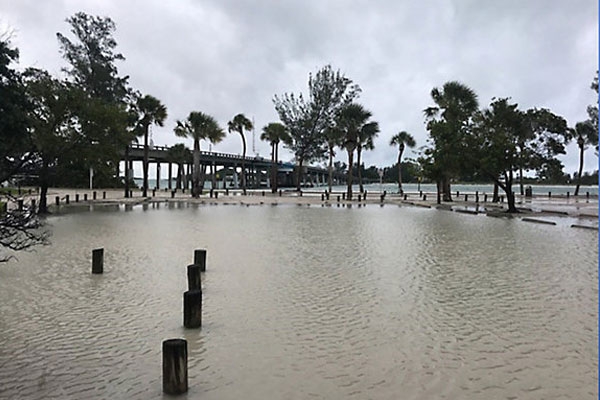
(Image source from: mynews13.com)
Subtropical Storm of Alberto has intensified in the northern Gulf of Mexico as it continues its march toward the Florida Panhandle.
The latest advisory has Alberto with winds of 65 mph. The center is located 95 miles south of Apalachicola, Florida.
Alberto is moving northwest at 9 mph with a minimum pressure of 991 mb.
Tropical Storm Warnings continue from the Alabama/Mississippi border to the Suwanee River in northern Florida.
A Storm Surge Watch is also posted for the northern and western Gulf coast region, from Navarre, Florida to Citrus County, Florida.
The system is now expected to hold its intensity but the likelihood of it becoming a tropical storm is in doubt.
Current indications show Alberto will likely make landfall between in the western Panhandle of Florida Monday morning or early afternoon.
Alberto remains a large system. Some areas of the Florida Panhandle, eastern Alabama and western Georgia could receive 4-8 inches of rain.
Tropical-storm force winds will continue to develop along the Gulf coast tonight, especially in the Panhandle. 2-4 feet of storm surge is also possible as Alberto nears landfall along the Gulf coast.
For Central Florida, the biggest threat will be gusty winds and scattered showers. Dry air has successfully pushed into the state, resulting in more showers than steady rains on Sunday.
The shower chance will continue overnight and into Memorial Day.
Wind gusts over 30 mph will also be possible tonight and early Monday. The winds will continue to create rip current dangers and hazardous boating conditions.
If you’re traveling on Memorial Day, the worst weather will be in the Florida Panhandle, especially in areas west of Tallahassee.
The system developed Friday morning near the northwestern Caribbean Sea. A subtropical storm means the center of circulation is exposed and the rain and thunderstorms are pushed away from the center. The highest winds are also away from the center.
Alberto is the first named storm in the Atlantic in 2018. Hurricane season in the Atlantic basin officially begins on June 1.
By Lokesh







